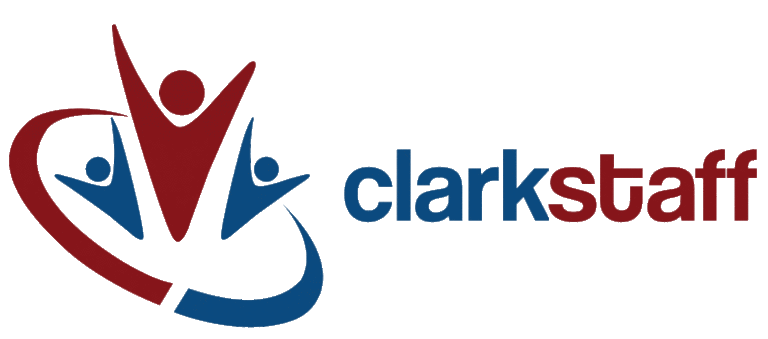Addressing the top 5 remote staffing challenges

As businesses expand, one of the most pressing hurdles they face is the talent gap, and it has been an ongoing challenge that affects companies worldwide.
This issue often arises when the demand for skilled workers outpaces the available talent pool in a specific region or country. Growing businesses may struggle to find qualified employees, hindering their ability to scale.
Offshoring has become a popular solution, offering access to a broader talent pool at potentially lower costs.
However, while this practice provides significant advantages, it also brings its own set of challenges. Remote staffing challenges can make managing an international workforce difficult.
In this article, we’ll explore how businesses can work through these hurdles effectively, with the help of Clark Staff.
Remote staffing in this day and age
Remote staffing has evolved into a mainstream business practice, driven by advancements in technology and changing workforce expectations.
According to FlexJobs’ 2023 Work Insights Survey, 95% of professionals express a desire for some form of remote work. The flexibility of remote work is also appealing to employees as it offers better work-life balance and reduces commuting time.
This shift reflects a growing trend where companies are no longer limited by geographical boundaries when hiring talent. Remote staffing’s benefits make it an attractive option for businesses looking to scale efficiently in the modern workforce.

Firms are able to take full advantage of:
- Access to global talent
- Reduced overhead costs
- Increased employee satisfaction
With tools like video conferencing, project management software, and real-time communication platforms, companies can collaborate seamlessly with teams across the world.
However, it also presents unique challenges, which the next section will shed light on.
5 ways to overcome remote staffing challenges
Here we have five ways businesses can address common remote staffing challenges.
1. Communication barriers
Remote teams often struggle with maintaining clear communication, especially when spread across different time zones. Misunderstandings, missed messages, and a lack of face-to-face interaction can easily lead to confusion and inefficiency.
To overcome these barriers, businesses can adopt digital tools like Slack, Zoom, and Microsoft Teams to streamline communication and ensure that all team members are on the same page.
Clear communication protocols are essential. Set expectations for response times and prioritize video conferencing for important discussions.
2. Maintaining team collaboration
Remote work can sometimes lead to isolation, making it difficult for team members to collaborate effectively. Without physical proximity, creativity and innovation may suffer, and keeping employees engaged can be a challenge.
To foster collaboration, businesses can use tools that create shared spaces for work and brainstorming. Regular team check-ins and virtual brainstorming sessions can also keep employees connected.
Clark Staff specializes in matching companies with offshore talent who thrive in collaborative environments.
3. Managing productivity and accountability
Tracking productivity can be particularly challenging when employees work remotely, raising concerns about overworking, burnout, or lack of oversight.
The key to managing remote productivity is:
- Setting clear goals
- Using time-tracking tools
- Establishing key performance indicators (KPIs) to measure progress
Clark Staff helps businesses identify results-driven remote workers who excel in accountability, providing solutions that maintain productivity without micromanagement.

4. Maintaining company culture
Fostering a cohesive company culture with remote teams is often one of the biggest hurdles. Dispersed teams can find it difficult to stay aligned with company values, mission, and vision.
To address this, businesses should invest in regular virtual team-building activities, celebrations, and informal gatherings that promote a sense of belonging.
Documenting and reinforcing company values in all remote communications helps ensure alignment.
Clark Staff assists businesses in onboarding remote teams that fit well with the company culture even from a distance.
5. Legal and compliance issues
Managing a remote team across different regions and countries can introduce complex legal challenges. These may include tax laws, labor regulations, and the risk of inadvertently violating local employment laws.
To mitigate these risks, firms should work with legal experts to navigate the complexities of global remote staffing. Clark Staff’s international reach and deep expertise in local regulations can help businesses stay compliant while managing remote teams effectively.
Beat remote staffing challenges with Clark Staff
Remote staffing doesn’t have to be a source of frustration. Clark Staff provides the support companies need to tackle these challenges, offering tailored solutions and in-depth knowledge of remote workforce management.
Build high-performing remote teams that contribute to long-term success as your partner with Clark Staff. Contact Clark Staff today and breeze through remote staffing challenges head-on!







 Independent
Independent




